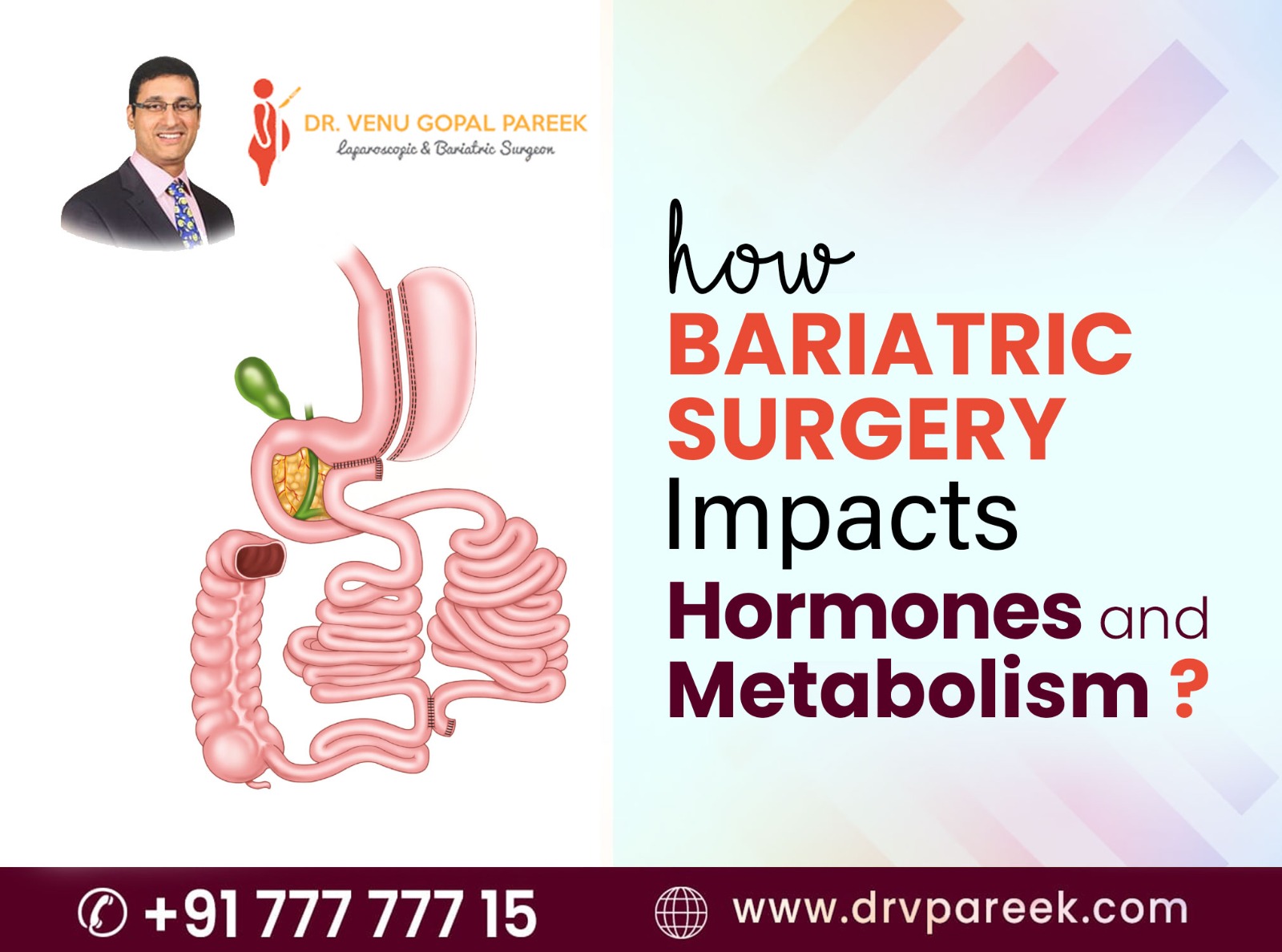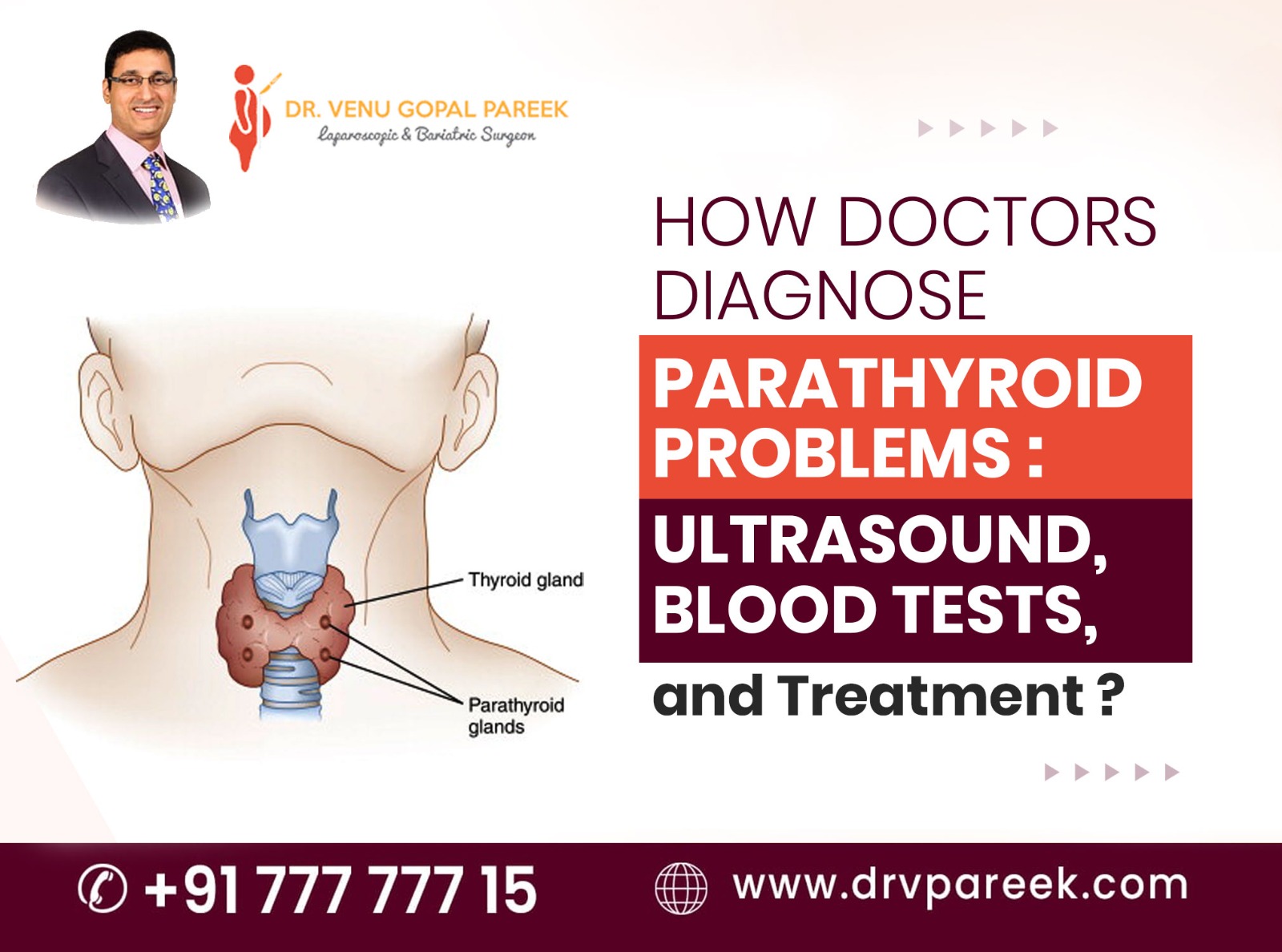
How Bariatric Surgery Impacts Hormones and Metabolism ?
Bariatric surgery is a popular weight loss procedure; it gained popularity due to its effective weight loss benefits and for overcoming various obesity-related health problems. Besides the benefits from weight loss, bariatric procedures like sleeve gastrectomy and gastric bypass can alter certain hormonal production and their functioning, which is the key to their long-term effectiveness. The changes in the hormones involved not only provide better weight loss results but also have a positive impact on controlling hunger, metabolism, and the level of emotional well-being.
This blog would cover the effects of bariatric surgery on hormones, the importance of the changes, and their role in achieving a healthy body weight and overall health improvement.
The role of hormones in weight management and how they are affected
Hormones play a key role in many bodily functions, especially maintaining weight, controlling appetite, and metabolism. Most of the hormones function by sending signals to the brain and the body. In such a way they can control hunger, usage of energy, and store fat. Below are the major hormones responsible for weight management:
Ghrelin
The production of ghrelin is reduced following bariatric surgery. Often this hormone is called the “hunger hormone” because this hormone is responsible for stimulating appetite and increasing food consumption. So reduced production of this hormone means reduced food consumption, which results in weight loss.
GLP-1
Glucagon-like peptide-1 (GLP-1) is the hormone that is responsible for slowing down digestion, promoting feelings of fullness, and reducing appetite. Increased production of this hormone can actually aid in weight loss and it is possible following bariatric surgery. Experts also say that GLP-1 can also improve insulin secretion and sensitivity.
Leptin
Following bariatric surgery, the leptin levels often decrease in the body, which might increase appetite initially. However, as the body adjusts to weight loss, the leptin levels increase, which helps to reduce hunger and also manage energy balance.
Insulin
Insulin sensitivity is dramatically improved after bariatric surgery. This is because of reduced weight and altered gut hormones. Some people experience even remission of type 2 diabetes.
PYY (Peptide YY)
This hormone plays a key role in control over appetite and feelings of fullness (satiety). The production of PYY increases following weight loss surgery, which in turn reduces hunger and satiety. Furthermore, this hormonal shift helps to achieve your weight loss goals, improved glucose metabolism, and insulin sensitivity.
Cortisol
It is also called the ‘stress hormone’, which has a great impact on weight management. Higher cortisol levels trigger fat storage, especially in the abdominal area. Following bariatric surgery, people experience improved chronic stress and mental health as they lose weight and improve their overall health—which in turn supports balanced production of cortisol, contributing to weight management and overall well-being.
Impact of bariatric surgery on Metabolism
Weight loss is the main goal of any bariatric procedure. It is acquired by reducing food consumption and altering signals of certain hormones.
Beyond weight loss, bariatric surgery has a great positive impact on metabolic health. It provides better control over blood sugar, blood pressure, cholesterol levels, and various other metabolic functions.
Bariatric surgery helps people beyond weight loss. The risk of developing or worsening various health conditions, especially those related to obesity like type 2 diabetes, sleeping disorders, heart problems, and certain types of cancer, is reduced.
Bariatric surgery is a path to your weight loss journey; following surgery, you need to follow post-surgical guidelines strictly to gain maximum benefits. Surgery may increase the risk of bone loss because of reduced food consumption, which is why you need to monitor your supplementation. You should follow a recommended diet and regular exercise.
Hormone shifts in women after bariatric surgery
Hormonal changes following bariatric surgery in women can improve conditions like polycystic ovary syndrome (PCOS), hirsutism (excessive body hair growth due to elevated androgen levels) and irregular menstrual cycles. Most of these conditions in women are caused by hormonal fluctuations, which can be addressed with bariatric surgery.
Hormone shifts in men after bariatric surgery
Obesity in men can lead to medical conditions like androgen deficiency or hypogonadism (low testosterone), which might be improved by bariatric surgery.
Other benefits include:
- Enhanced libido and sexual function
- Increased muscle mass bone density
- Reduced risk of metabolic disorders
- Improved quality of life
Overall, the hormonal changes that happen following bariatric surgery can help with appetite control, increased feeling of fullness (satiety) and blood sugar control, which are important in long-term weight management and preventing weight gain.
How can I balance hormonal levels following bariatric surgery?
Hormonal shifts are inevitable following bariatric surgery, and balancing the hormonal changes plays a key role in your long-term success. Here are a few tips you can follow to help your body maintain its hormonal health:
Follow a diet plan that has foods with more protein, fibre, and healthy fats. A balanced diet that fulfils the nutritional needs of your body can help preserve hormonal health.
You may need supplementation following most of the bariatric procedures. Doctors might advise taking multivitamins, calcium, vitamin D, and B12 supplements to fulfil nutritional requirements.
Regular physical activity contributes in many ways, like reducing stress, stabilising hormones and promoting weight loss. So a regular exercise routine is highly recommended.
To keep the stress hormone (cortisol) levels on track, it is recommended to practise stress-relieving techniques like yoga, meditation, or deep breathing exercises.
Many people neglect follow-up appointments. Never do that because it is the only way to monitor your weight loss progress, and if anything goes sideways, your doctors make necessary adjustments like changes in diet plan, medication and lifestyle. Furthermore, they also help you to maintain your hormonal balance.
Bariatric surgery is far more beneficial than you think. If you are obese or overweight and want to lose weight, don’t hesitate; consult Dr. Venugopal Pareek, the best bariatric surgeon in Hyderabad.







